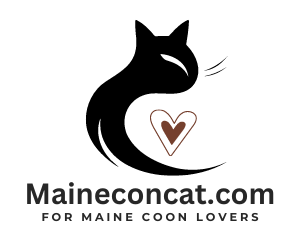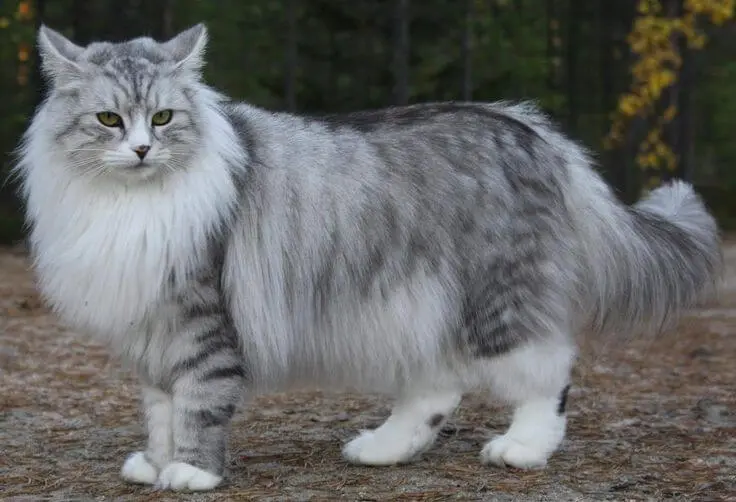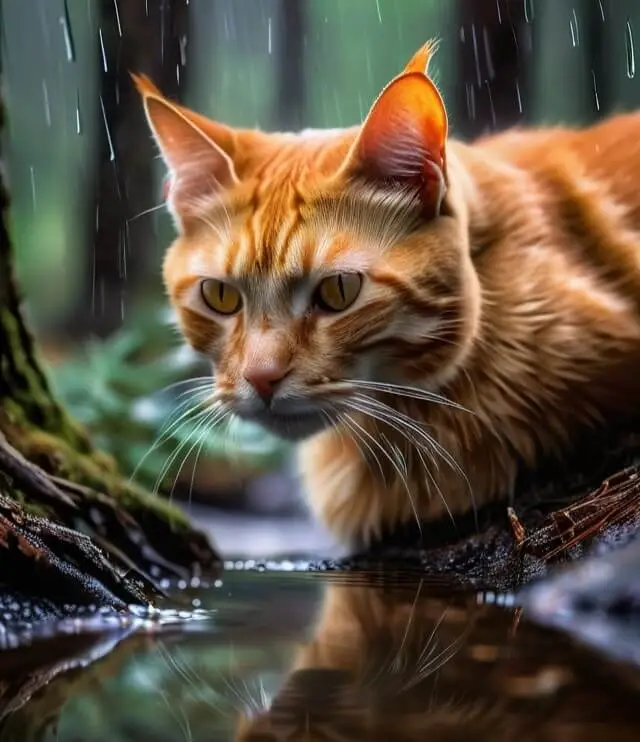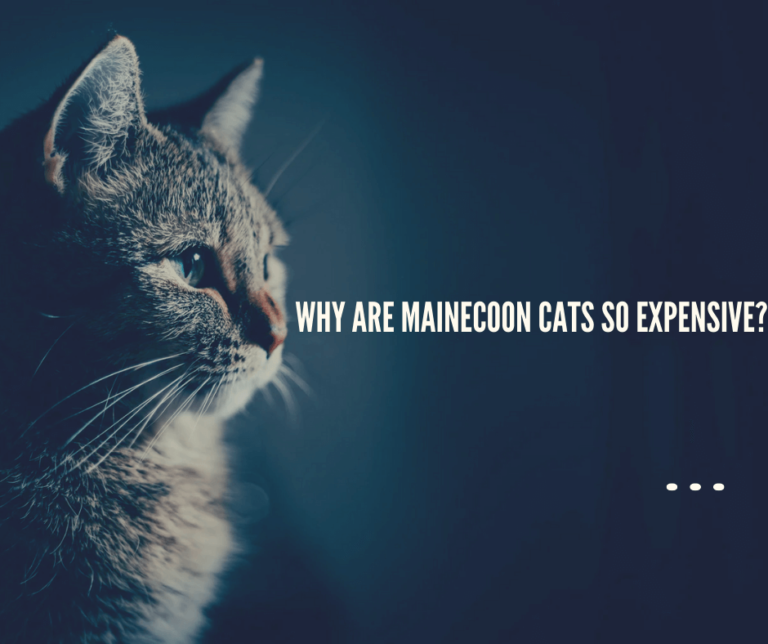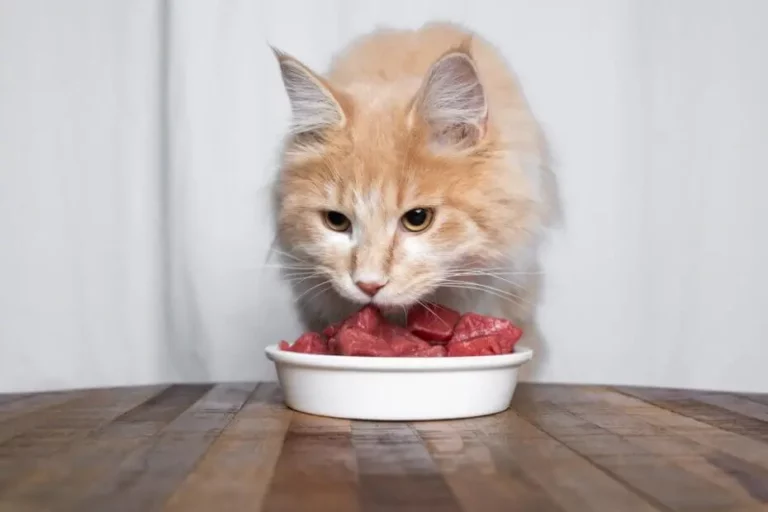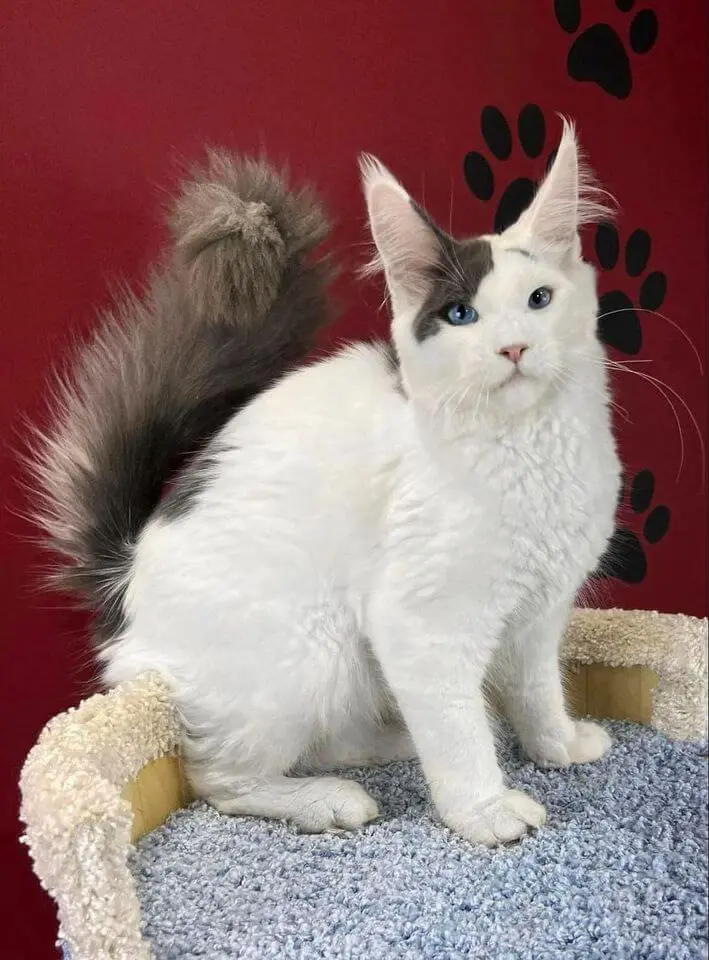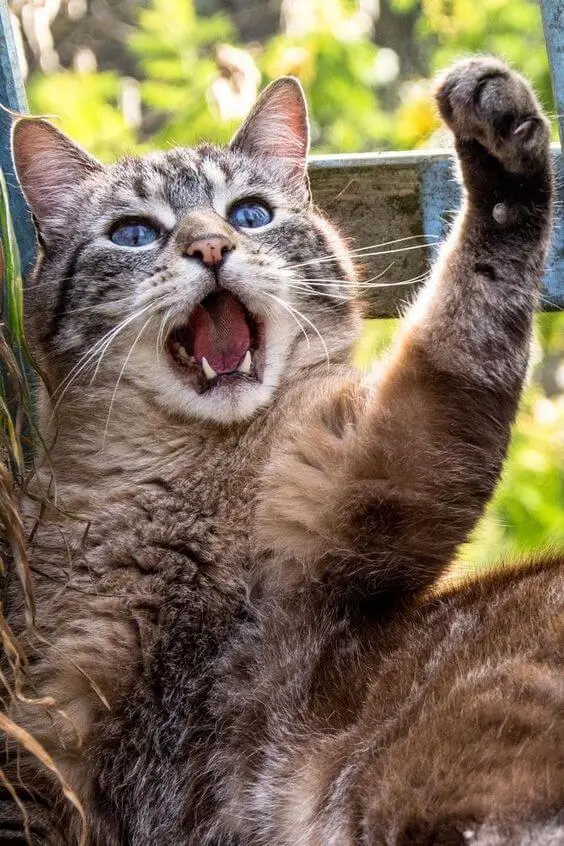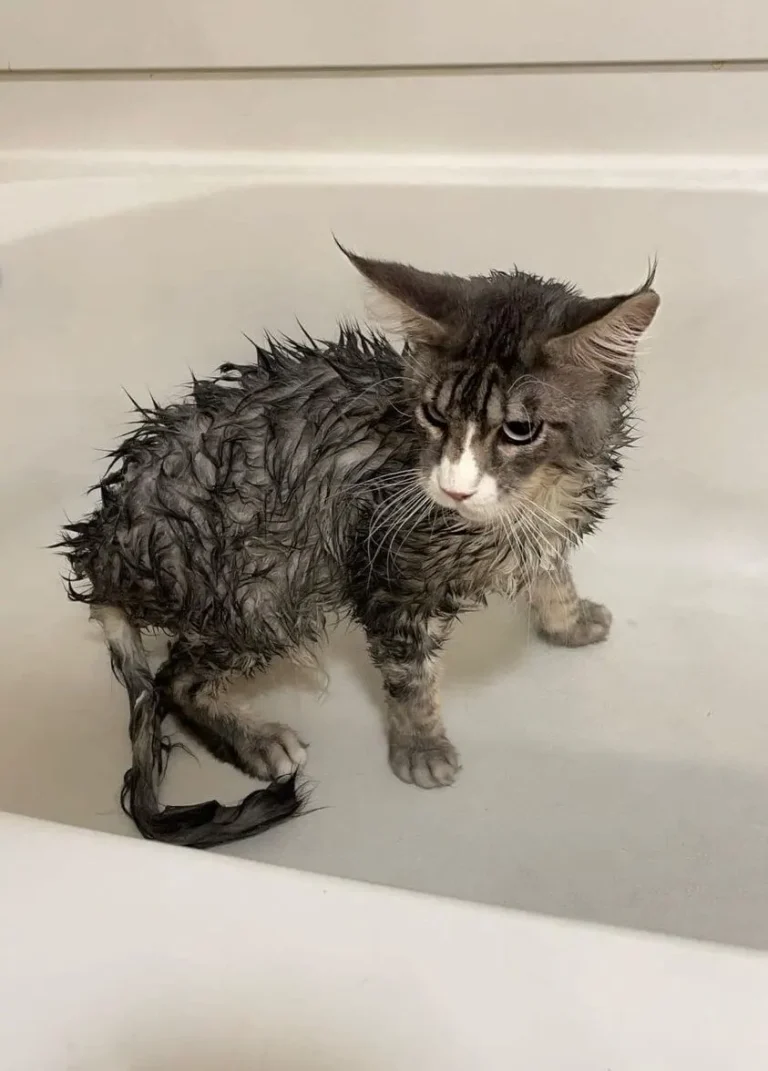Is My Maine Coon Overweight? (How To Tell)
The Maine coon is a good-natured and pleasant cat that has no trouble adopting many lifestyles and personalities. They like being with people, but they are not clingy either, They happily take attention when you give it to them, but they also like to stay out of the way when things are busy. Because Maine Coons are huge cats by nature, it might be challenging to identify an overweight one. The definition of overweight varies based on the age of a Maine Coon, as they can develop into adulthood over several years.
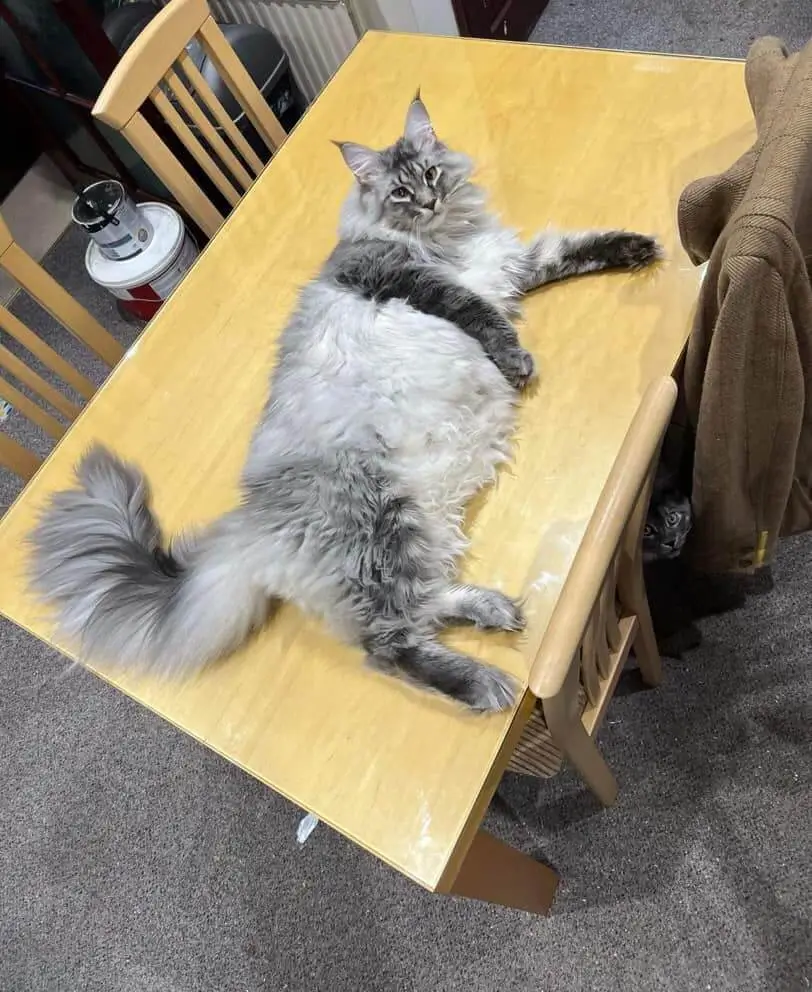
Is My Maine Coon Overweight? This is the question that arises in almost all owners if their maine Coon is gaining excess weight. Because Maine Coon cats have large bodies and dense, thick hair, it might be challenging to determine whether they are overweight. Therefore, if you’re wondering whether your gentle giant has to start a special weight-loss diet, make sure you check out the information below for owners who are wondering about Is my Maine Coon Overweight?
How to Know if Your Maine Coon is Overweight
Maine coons or other pets become fat if owners don’t control their diet or eating habits. It might be challenging to determine if your cat is overweight. Due to the thickness of their coat. It’s hard to determine if these cats are overweight because of all the fur on their bellies. Still, you may check to see whether your Maine Coon must lose a few pounds by carrying it. To begin with, examine your Maine Coon’s shape closely. In particular, measure the length around his waist. When it appears completely developed, your cat may benefit from losing some weight.
Omar, the Australian Maine Coon, is 120 cm tall and 14 kg in weight. After Omar’s owners shared a photo of the enormous furball on Facebook, Guinness World Records got in touch with them.
It’s not always simple to tell whether Is my maine coon overweight just by looking at them; sometimes the signs are more subtle. Find out what these more subdued clues are by reading on!
Maine Coon Weight Chart By Age
| Maine Coon | Male Weight | Female Weight |
| Newborn | 90 – 170 g (0.19 – 0.37 lb) | 90 – 150 g (0.19 – 0.33 lb) |
| 1 Week | 190 – 290 g (0.41 – 0.63 lb) | 160 to 260 g (0.35 – 0.57 lb) |
| 2 Weeks | 290 – 430 g (0.63 – 0.94 lb) | 280 – 410 g (0.61 – 0.90 lb) |
| 3 Weeks | 430 – 600 g (0.94 – 1.32 lb) | 410 – 550 g (0.90 – 1.21 lb) |
| 1 Month | 620 – 820 g (1.36 – 1.80 lb) | 550 – 740 g (1.21 – 1.63 lb) |
| 2 Months | 1.1 – 1.6 kg | 1 – 1.4 kg |
| 3 Months | 1.7 – 2.4 kg | 1.5 – 2.3 kg |
| 4 Months | 2.9 – 3.8 kg | 2.5 – 3.5 kg |
| 5 Months | 3.3 – 5.5 kg | 2.7 – 4.2 kg |
| 6 Months | 3.4 – 6 kg | 3.1 – 4.3 kg |
| 7 Months | 4.1 – 6.5 kg | 3.3 – 4.6 kg |
| 8 Months | 4.4 – 6.9 kg | 3.7 – 5 kg |
| 9 Months | 5 – 7 kg | 4.1 – 5.2 kg |
| 10 Months | 5.1 – 7.8 kg | 4 – 5.5 kg |
| 11 Months | 5.5 – 8 kg | 4.3 – 6 kg |
| 1 Year | 5.8 – 9 kg | 4.5 – 6.5 kg |
| 4-5 Years | 6.8 – 11.3kg | 6.5 – 9.5 kg |
If your Maine Coon is below or above this weight according to his relevant age then it’s a matter of concern. You should ask your veterinarian for help on how to help best your cat lose weight if it weighs considerably more than or below this range. However, some other general signs can indicate whether a cat might be overweight:

Body Condition Score (BCS)
Veterinarians often use a body condition scoring system to assess a cat’s weight. You can do a basic check by feeling your cat’s ribs. In a cat at a healthy weight, you should be able to feel the ribs without pressing too hard.
Waistline
From a top view, a cat at a healthy weight typically has a noticeable waistline behind the ribs. If the cat’s body appears rounded or there’s no visible waistline, it could be a sign of excess weight.
Belly Protrusion
When viewing your cat from the side, there should be a gradual slope from the ribs to the hips. If the belly hangs down significantly, it might indicate excess weight.
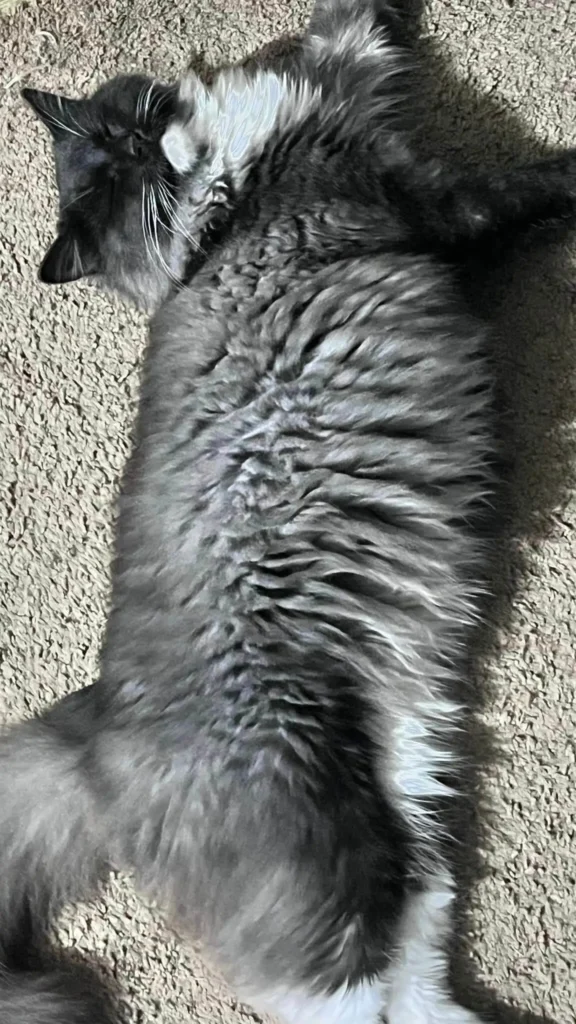
Activity Level
Changes in your cat’s activity level can be an indicator. If your cat is less active than usual, it could contribute to weight gain.
Weight History
If your cat has experienced recent weight gain, it’s essential to consider potential factors such as diet changes or health issues.
Why Is My Maine Coon Overweight?
These kittens tend to be overweight, and because of their thick hair, it is almost impossible to see. Nevertheless, you might consider the following suggestions to determine if your pet is a few kilograms overweight. If your Maine Coon is overweight, there could be various factors contributing to this condition. Identifying the reasons behind your cat’s weight gain is essential for addressing the issue. Here are some common reasons why a Maine Coon might be overweight:
Overfeeding:
Overfeeding is one of the most common reasons for a cat to be overweight. Cats may consume more calories than they burn, leading to weight gain. Ensure you are feeding an appropriate portion size for your cat’s size, age, and activity level.
Inactivity (Lack of Exercise):
Lack of physical activity is the key factor of weight gain. Maine Coons are generally active cats, and they need regular play and exercise to maintain a healthy weight. If your cat is not getting enough exercise, it can lead to excess weight.

Incorrect Diet (High-fat diet):
Feeding a diet that is too high in calories or lacks proper nutritional balance can contribute to weight issues. Ensure you are providing a well-balanced and appropriate cat food.
Medical Conditions:
Some medical conditions, such as hypothyroidism or hormonal imbalances, can lead to weight gain. If you suspect a medical issue, it’s crucial to consult with a veterinarian for a thorough examination.
Age and Metabolism:
As cats age, their metabolism can slow down, making them more prone to weight gain. Because the metabolism slows down with age, Older cats tend to put on weight more easily than younger Maine Coons. Compared to their male counterparts, female Maine Coon cats are more likely to develop obesity because they tend to put on weight after giving birth and caring for their young. Adjusting their diet and activity levels as they age can help manage their weight.
Changes in Routine:
Changes in your cat’s routine or environment can contribute to stress, which may lead to overeating and weight gain.
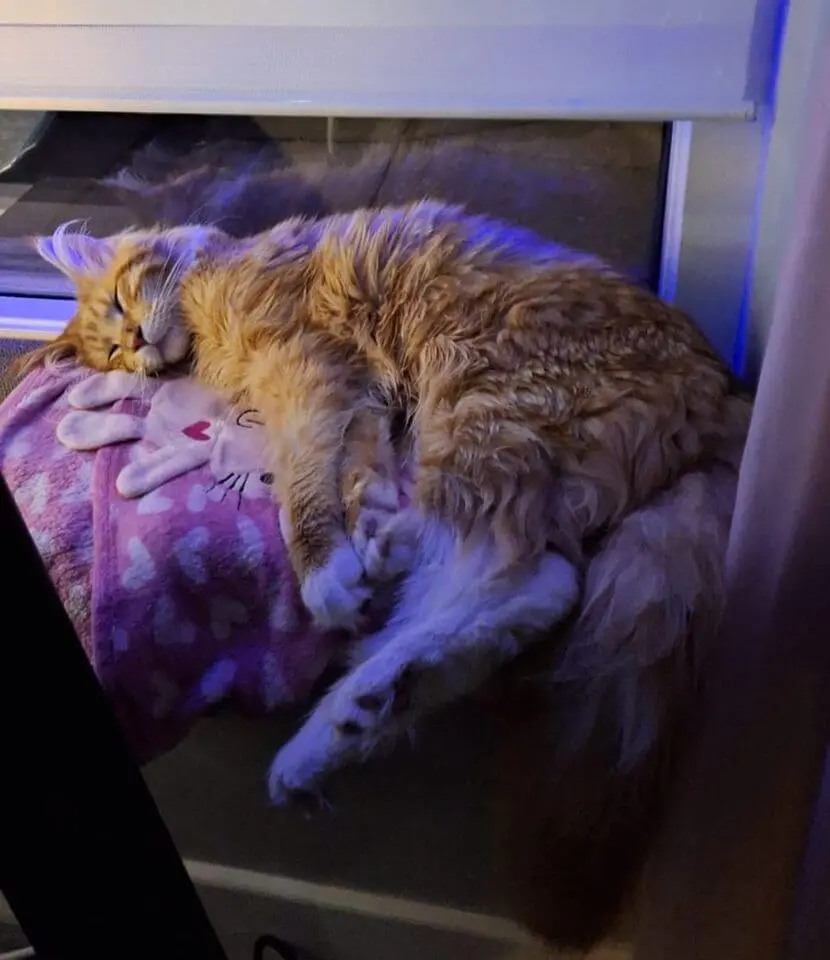
What happens when your Maine Coon is overweight?
To put it briefly, you may be a part of your Maine Coon’s short, unpleasant, and uncomfortable life if you let it grow to be overweight and stay that way. If Maine Coons are overweight then they will be at risk of developing health problems. Some of them are the following,
Diabetes
This happens when the body either stops producing enough insulin to control blood sugar levels or develops resistance. One of the main causes of diabetes in cats is obesity, and because Maine Coons are larger than other cats, they are especially vulnerable to the disease. Lethargy, weight loss, and increased thirst and urination are signs of diabetes in cats.
Heart disease
Hypertrophic cardiomyopathy is characterized by the thickening of the heart muscle, making it harder for the heart to pump blood effectively. Obesity can exacerbate the risk of developing this condition in cats, including Maine Coons. The additional weight increases demands on the heart, potentially leading to cardiac issues over time.
High blood pressure
When a cat is overweight, the heart has to work harder to pump blood throughout the body, and this increased workload can lead to elevated blood pressure. Hypertension can have serious consequences for a cat’s health, affecting various organs such as the heart, kidneys, and eyes.
Kidney disease
The kidneys play a crucial role in filtering waste products from the blood and maintaining proper fluid balance. When a cat is obese, several factors can lead to kidney-related issues:
- Increased Workload on the Kidneys
- Hypertension (High Blood Pressure)
- Insulin Resistance
- Inflammation
Joint problems
Being overweight stresses joints more, which increases the risk of arthritis and other joint problems. Your cat may have pain and discomfort from this, and their range of movement may be reduced.
Cancer
Last but not least, a key factor in deciding your Maine Coon’s appropriate weight is their general health. Your cat might need a different diet or feeding schedule to maintain weight if they have underlying medical issues or are on medication. Working with your veterinarian to develop a customized strategy that addresses your cat’s specific needs is crucial.
How To Help Your Cat Lose Weight?
Helping a Maine Coon lose weight requires a combination of proper nutrition, regular exercise, and monitoring their overall well-being. Here are some tips to help your Maine Coon achieve and maintain a healthy weight:
High-quality diet
Give your cat a high-quality diet that has every nutrient necessary for optimal health. Your cat will live longer and be happier if they eat a healthy diet. Bring diet foods and cut-off snacks. Since these are so big. It is so hard to take care of her. So if you have to reduce the amount of food then buy a gram scale and give the same amount and write on a book. A steady recording is a basic diet.
Do Maine Coons Need A Special Diet?
Since proteins make up almost two-thirds of a cat’s diet, they require more protein than dogs, but not as much as humans. Though not as crucial as proteins, carbohydrates are however necessary. Cats require a lot of fat as well, particularly omega-3 and omega-6 essential fatty acids (EFAs). These EFAs lessen muscle and joint inflammation and offer protection against skin conditions and heart disease. To prevent them from growing, wet food should only be given to Maine Coon cats around twice a week. After that, you can give them a raw food diet, a premium dry food diet, or a combination of the three. In detail please read this article Food For Maine Coon: What They Love To Eat?
Contact your veterinarian before starting any weight loss program. They can assess your cat’s current health, determine an appropriate target weight, and provide guidance on a safe weight loss strategy. Engage your Maine Coon in interactive play sessions. Use toys that encourage them to move and jump, simulating hunting behaviors. Laser pointers, feather wands, and puzzle toys can be effective. Provide vertical spaces for climbing and perching. Cat trees and shelves can encourage physical activity. Additionally, rotate toys regularly to keep your cat mentally stimulated. Limit the use of treats, and if necessary, choose low-calorie options. Consider using small pieces of their regular food as treats during training sessions.
Regularly weigh your Maine Coon to track their progress. Your veterinarian can guide you on the appropriate frequency for weigh-ins. Gradual weight loss is healthier than rapid changes. Measure your cat’s food portions to ensure they are receiving an appropriate amount of calories. Follow the feeding guidelines on the cat food packaging, and consider using a designated measuring cup. Opt for a high-quality cat food specifically designed for weight management. These diets typically have lower calorie content and can help your cat feel full while losing weight.
Conclusion
In conclusion, determining whether is my Maine Coon overweight can be challenging due to their large bodies and thick fur. However, examining their shape, measuring their waistline, and considering their weight on the Maine Coon weight chart can help determine if they need to lose weight. Overfeeding, lack of exercise, incorrect diet, medical conditions, age, and changes in routine can contribute to weight gain in Maine Coons. It is important to help them lose weight through proper nutrition, regular exercise, and monitoring their overall well-being to prevent health issues such as diabetes, heart disease, kidney disease, joint problems, and cancer. Consulting with a veterinarian and following their guidance is crucial in developing a customized weight loss strategy for your Maine Coon.
